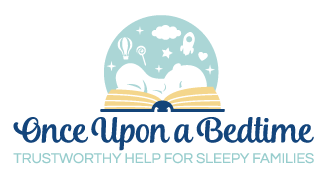Can essential oils improve your little one’s sleep? It’s an enticing solution. Lavender, an essential oil often associated with sleep, has a fragrance that many would say they find pleasing. Using something we already find pleasant as a solution to a difficult problem has “WIN” written all over it!
One of the biggest challenges for researchers in studying how essential oils affect sleep is the fact that our own feelings toward the oils themselves can affect study results. In a well-designed study done in 2008, participants were divided into two groups: one who was told that the fragrance they would experience would help them to relax, and one group who was told that the fragrance would actually hinder them from relaxing.
The results were remarkable: the oils themselves had no effect, but the prompt that each group received significantly affected an objective measurement of relaxation. Those who were told that the oils would help them relax actually relaxed less, and those who were told that it would be harder for them to relax were able to relax more. It seems that those who expected the oils to do the work of helping them relax put less effort themselves into relaxing after a stressful task, while their counterparts who believed that the oils would get in the way actually tried harder to relax–and succeeded.
Stress and anxiety play a significant role in how well we fall asleep and stay asleep, but the stress level of the parent as perceived by the child may be even greater than the child’s own stress.
In the only experiment to date that has looked at the role of essential oils in infants’ sleep, the power of expectations was also put into play. Three groups of mother-infant pairs participated: one group bathed their babies in a bath with a few drops of lavender oil added, the second group bathed their babies normally, and the third group was recruited with the promise that the bath oil would help calm and settle their babies.
Once again, the group that was led to believe that the oils would do something for them did less of the work themselves. The third group, who was told that the oil would help relax their baby, was the least-relaxed group of mothers. However, both groups using the oil in the bath water touched their babies more than the group without the oil. The babies in group one, who had the oil but whose mothers had no expectations about what it would do, spent the most time in deep sleep that night. We can’t conclude that this was the result of the lavender oil though: these babies had mothers who were more relaxed, in addition to receiving more touch.
Your role as a parent is powerful. When we are in tune with our little ones and respond sensitively, they pick up on our mood. Do you enjoy the scent of certain essential oils? If you personally feel that essential oils would help you enjoy bedtime more, go ahead and add them to your routine. Does your child enjoy bath time? Add a drop or two of your favorite fragrance and see if it makes the time more pleasant for both of you. (Check to make sure the oils you’re using are safe for infants.) If your baby enjoys being touched, there is evidence that a brief massage with moderate pressure leads to better sleep for baby (light touch is more stimulating)–but it may be that the difference has less to do with the touch itself or with any oils you use than with your direct interaction with your little one. Your baby’s favorite thing in the world is you.
